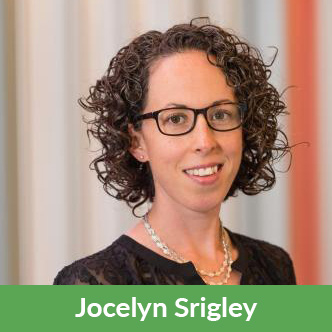Where were you when COVID-19 was declared a global pandemic by the World Health Organization? What did you think and how did you feel? In the second part of our series highlighting one year of COVID-19 at PHSA, staff in Infection Prevention Control, the Provincial Infection Control Network, Workplace Health and IMITS reflected on their memories both at work and at home.
Building partnerships and breaking down barriers
 Jocelyn Srigley, medical microbiologist and Infection Prevention and Control (IPAC) medical co-lead, BC Children’s Hospital and BC Women’s Hospital + Health Centre, knew pretty early on that the novel coronavirus was going to be a concern. She remembers discussions happening in early January 2020, but didn’t anticipate it turning into the pandemic we now know too well. “We were expecting COVID-19 cases here in B.C., knowing that we get a lot of visitors from China,” she says. “So even before the first case was confirmed, we had already been meeting regularly to share rapidly-changing information and consistent recommendations with our partners.”
Jocelyn Srigley, medical microbiologist and Infection Prevention and Control (IPAC) medical co-lead, BC Children’s Hospital and BC Women’s Hospital + Health Centre, knew pretty early on that the novel coronavirus was going to be a concern. She remembers discussions happening in early January 2020, but didn’t anticipate it turning into the pandemic we now know too well. “We were expecting COVID-19 cases here in B.C., knowing that we get a lot of visitors from China,” she says. “So even before the first case was confirmed, we had already been meeting regularly to share rapidly-changing information and consistent recommendations with our partners.”
Vladlena Abed, director of IPAC, recalls how important it was to obtain and disseminate accurate information to the right people.
“Inconsistency in messaging creates a lot of anxiety, and when there is a void of evidence-based information, people seek it elsewhere. We worked hard to create consistency where it mattered.
In the midst of such an unprecedented time, the small but mighty IPAC team came together to accomplish quite a lot. “Everyone stepped up and worked really hard under stressful circumstances,” Jocelyn tells us. “We all supported each other. It was gratifying to see that our work was impacting the rest of the organization, too. I’m really proud of all PHSA staff, from clinical programs and leadership to our frontline and everyone in between, who took ownership of IPAC principles and integrated them into their work.”
Vladlena reflects on the team’s efficiency. “We became very efficient,” she says with a laugh. “We found ways to solve the largest problems in 15 minutes. Half hour meetings became really productive.”
She looks back with pride at the collaboration between different program areas and partnerships built for the first time. “It was very inspiring to speak openly with various departments and break down invisible barriers. For example, we started collaborating with Workplace Health, which has similar messages to us, but they work with staff while we work with patients and families in addition to our employees. People didn’t recognize that difference. But now we have relationships and we navigated the system together. We are more closely linked with other areas and we’ve learned how we can help each other.
 Vladlena is carefully optimistic about the future. “I still think every day, ‘How do we sustain what we’re doing? How do we continue to do this?’” she says. “We have to train our practitioners differently because we want to be ready for whatever is coming next. COVID-19 is not going away. We live in a world that is simply not sterile. We have to keep integrating best infection control practices into our daily lives.” She pauses and leaves us with her last thought: “Wash your hands!”
Vladlena is carefully optimistic about the future. “I still think every day, ‘How do we sustain what we’re doing? How do we continue to do this?’” she says. “We have to train our practitioners differently because we want to be ready for whatever is coming next. COVID-19 is not going away. We live in a world that is simply not sterile. We have to keep integrating best infection control practices into our daily lives.” She pauses and leaves us with her last thought: “Wash your hands!”
Like many of us, Patrick Whalen, senior director, Workplace Health and Safety, is a little fuzzy on the details from a year ago. “Lots has happened and to say things are blurry is the understatement of the year,” he says. But a few things do stand out. “When we first heard about COVID-19 at PHSA, we transitioned from long range planning discussions to operating in real time with things changing by the minute in just a few weeks.
 Personally, I was worried about my family, because there were so many unknowns about the virus.” Thinking a little harder, some other memories of the first stages of the pandemic come up. “I remember leaving a Super Bowl party early to have a Sunday night conference call with everyone from work,” he recalls. “Also meeting Dr. Bonnie Henry in person and discussing upcoming spring break and vacation plans – which never happened. And thinking she had cool shoes.”
Personally, I was worried about my family, because there were so many unknowns about the virus.” Thinking a little harder, some other memories of the first stages of the pandemic come up. “I remember leaving a Super Bowl party early to have a Sunday night conference call with everyone from work,” he recalls. “Also meeting Dr. Bonnie Henry in person and discussing upcoming spring break and vacation plans – which never happened. And thinking she had cool shoes.”
Patrick is extremely proud of how teams came together across PHSA and within clinical programs to implement measures that keep our patients and staff safe. “I feel fortunate to have worked alongside our senior medical and operational leadership during such a difficult time,” he says.
“Their dedication to our patients and staff was so inspiring. I’ve also been able to work with many people across the organization and have been supported by so many wonderful colleagues.”
On a personal note, he is grateful and relieved that his family and friends have been healthy during the pandemic, and now that COVID-19 vaccination is underway, is feeling positive about what lies ahead. “It was a very emotional experience to witness the first vaccination take place at PHSA’s first clinic. There’s a feeling of relief and hope in the air. I’m really happy to be a part of this next phase.”
The Provincial Infection Control Network of B.C. (PICNet) recognized that a novel coronavirus would impact all of us greatly, but was confident in the teams and partners they work with around the province. “We have an amazing team and excellent infrastructure to manage health emergency situations,” PICNet Medical Co-Directors Drs. Linda Hoang and Titus Wong say. “We knew everyone would rise to the occasion.”
PICNet Network Director Tara Donovan agrees and highlights, “PICNet has played an integral role in leading and coordinating the development of provincial infection prevention and control guidance and resources to support British Columbia’s response to COVID-19. We are especially proud of one of our early and most impactful actions – gathering our core team of experts across the health authorities to provide a rapid recommendation for mask requirements in the province.”
PICNet’s leadership acknowledge, “Our whole team has worked tirelessly throughout the pandemic and continues to do so with renewed energy and a positive attitude in order to tackle challenges. We are so inspired by the dedication of health care workers in the health authorities. Looking ahead, we need to remember that the basic principles of infection prevention and control are very important to guide us into the future. We’re hopeful that our efforts continue to protect patients and health care workers for years to come.”
Perhaps one of the biggest changes we’ve seen as an organization during COVID-19 is the transition from working on site to working from home. Our IMITS team made working from home work for many of us, mobilizing at warp speed to give staff remote access safely and securely through what we will all know as the VPN solution.
 “We were a bit panicked about how we were going to access all of our internal resources from home to abide by new physical distancing rules,” explains Gayle Prasad, technical solutions architect with IMITS. “But we wanted to put forth our extreme efforts in finding a solution where we could make it possible.”
“We were a bit panicked about how we were going to access all of our internal resources from home to abide by new physical distancing rules,” explains Gayle Prasad, technical solutions architect with IMITS. “But we wanted to put forth our extreme efforts in finding a solution where we could make it possible.”
Benjamin Wan, senior enterprise architect and VPN lead, is extremely proud of the successful deployment of the VPN solution during a challenging time. “Although we’re not frontline workers, we kept all the digital parts of health care going,” he says.
 IMITS Clinical Informatics Advisor Anu Dosanjh agrees. “It was really rewarding to effectively deliver and communicate a solution to PHSA staff, all while following social distancing guidelines during crisis mode, so that they could work from home.”
IMITS Clinical Informatics Advisor Anu Dosanjh agrees. “It was really rewarding to effectively deliver and communicate a solution to PHSA staff, all while following social distancing guidelines during crisis mode, so that they could work from home.”
Hardeep Parwana, security architect, and Jeff Chen, Citrix solution architect, were both integral to building and delivering the VPN project to PHSA staff. Hardeep remembers first hearing the question from leadership: “How do we get everyone working from home?” At that moment, in spite of much confusion and apprehension, the team sprang into action – he, Jeff, Gayle and Ben spent countless hours testing, retesting, designing and redesigning the VPN solution. “We had to make it both practical and easy to use while not compromising on security,” he says. Both he and Jeff are extremely proud of the end product. “It was truly a team effort,” Jeff emphasizes.

Thanks to IMITS and the VPN solution, staff don't have to worry about their passwords expiring and being mismatched or having MS Office deactivated. They don't have to worry about not receiving critical software updates or security patches being delivered to their workstations, and they are able to connect to all of their office applications and resources as if they were at the office in the comforts of their own home.
 Looking ahead, Gayle and Anu both feel more confident in providing technical solutions to PHSA staff working remotely, given everything they accomplished at the height of the pandemic in such a short time. Ben is energized when he thinks about the future of health care in the digital space. “I’m looking forward to building upon the new and innovative ways we work and continuing with that momentum post-pandemic,” he says. “It’s exciting to think about how we were able to push the boundaries of technology and come up with new ways to deliver health care, and how much more we can achieve.”
Looking ahead, Gayle and Anu both feel more confident in providing technical solutions to PHSA staff working remotely, given everything they accomplished at the height of the pandemic in such a short time. Ben is energized when he thinks about the future of health care in the digital space. “I’m looking forward to building upon the new and innovative ways we work and continuing with that momentum post-pandemic,” he says. “It’s exciting to think about how we were able to push the boundaries of technology and come up with new ways to deliver health care, and how much more we can achieve.”
